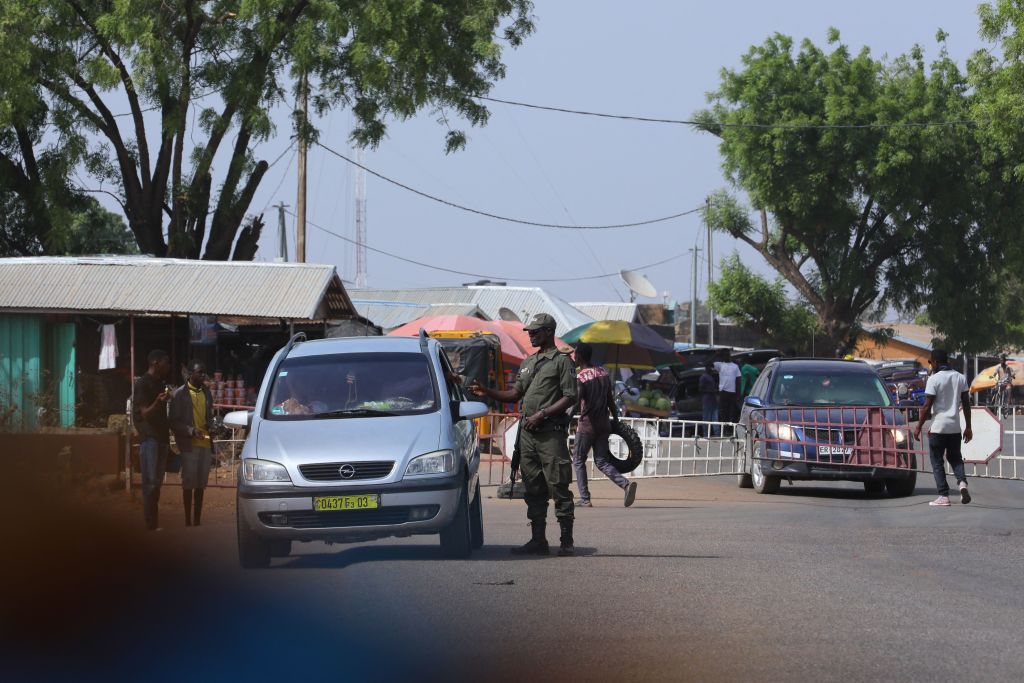ADF STAFF
With extremists sowing chaos all around it, Ghana remains an island of calm. However, observers say conditions in the country’s northern regions may put that stability at risk.
In Bawku and other communities along Ghana’s north, weapons and contraband flow freely across the porous border with Burkina Faso, where terrorists control nearly half of the country. For example, Ghanaian-made dynamite has turned up among militant camps in Burkina Faso.
“Ghana is not a hotbed of recruitment, but there have been some notable cases,” researchers Eliasu Tanko and James Courtright wrote recently in Foreign Policy magazine. In 2021, for example, extremists recruited a Ghanaian man to become a suicide bomber in Mali.
Ethnic ties across the border feed resource smuggling and calls for violence against the Ghanaian government in response to deportations of Fulanis back to Burkina Faso.
So far, the calls for violence have found few takers.
“Despite a handful of messages attempting to incite attacks against the Ghanaian government, of the four coastal states bordering Burkina Faso, Ghana is the only one that reports that it has not suffered an attack by insurgents,” Tanko and Courtright wrote.
In recent years, Ghana has launched its “See Something, Say Something” campaign to encourage residents to report suspicious activity. It also has boosted security forces in the north to deter violence from beyond its borders. The government has approved construction of or upgrades to 15 forward operating bases in the north and deployed three new brigades and two battalions to the region.
But experts caution that by focusing on external threats, Ghana may be overlooking another source of potential violence: conflicts within border communities that make them targets for terrorist recruiters.
Communities in northern Ghana have fewer resources than those closer to the capital, Accra. Socio-economic challenges and few job opportunities make young people in border communities open to extremists.
In Bawku, political strife between tribes also provides inroads for violent extremists aiming to turn those tensions to their advantage.
“The security situation in Bawku not only provides a conducive environment for violent extremists to infiltrate and radicalize the local community, but also poses a serious threat due to the influx of Burkinabe fighters from Boulgou province,” analyst Gideon Ofosu-Peasah wrote recently in The Conversation.
The potential threat from extremists in northern Ghana is accentuated by the fact that they already live among the communities there or cross the border to regroup and recover from attacks elsewhere.
“At this point, it appears that insurgents see their access to the country as a safe haven and smuggling route as too useful to destabilize with direct attacks,” Tanko and Courtright wrote.
Ghanaian leaders say the country’s political stability and strong economy help keep extremism at bay. Ghana’s gross domestic product is nearly triple Burkina Faso’s, according to the World Bank.
But the relative peace may mask hidden threats.
Extremists operating quietly in northern Ghana make a point to avoid harassing the residents there to avoid creating ill will. They also realize they have more to gain from keeping Ghana calm and quiet.
“If the insurgents attack Ghana, it would become much harder for them to use Ghana as a safe haven,” Clement Aapengnuo, a peace and security activist, told Tanko and Courtright. “At this point, Ghana is more useful stable.”

